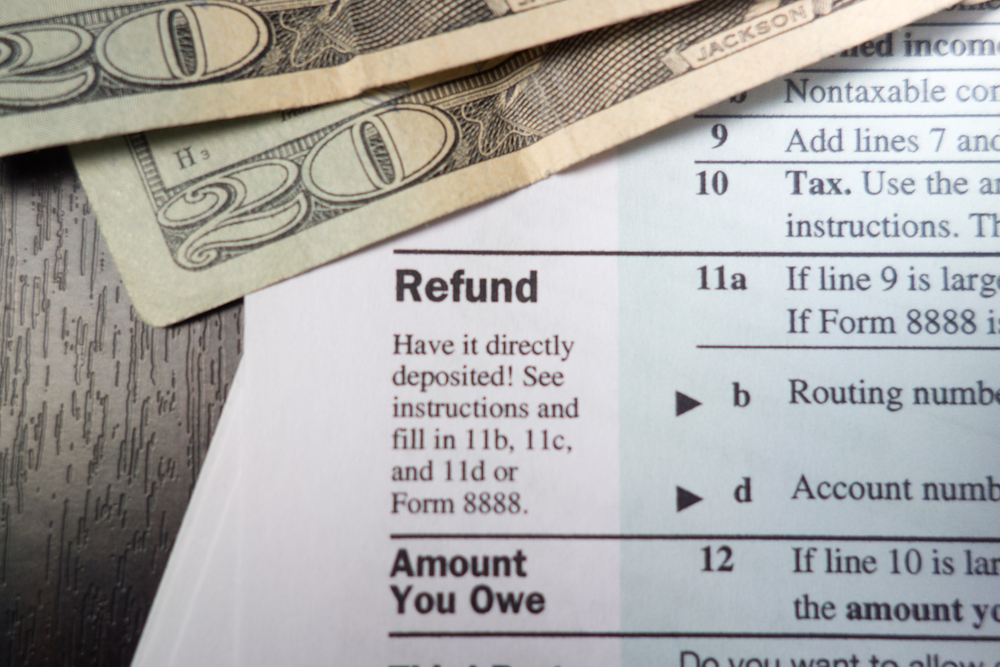Should You Expect Your Tax Refund to Be Delayed Again This Year?
Peacock & French CPAs
Mar 01, 2022

Like virtually every other industry out there, the IRS is running behind these days, thanks to the COVID-19 pandemic. Staff shortages, issuing advanced child tax credit payments and stimulus checks, and delayed tax deadlines have taken a toll on the IRS’s ability to process returns in a timely manner. Many people noticed this last year, with tax returns being processed much more slowly—and some of those people are still waiting for their 2020 returns to be finalized. With those delays in mind, should you expect your tax refund to be delayed this year too? Keep reading to find out.
Just How Far Behind Are They?
So, exactly how far behind is the IRS on processing last year’s returns? Some people might be surprised to learn that the IRS does typically have about 1 million unprocessed returns from the previous tax season when a new tax season is starting. While that might sound high, that’s nothing compared to the roughly 6 million unprocessed individual returns they had backlogged as of the end of 2021. Naturally, this significant increase in workload might cause a few snarls similar to what taxpayers experienced during the 2021 tax season. Back then, more than 30 million taxpayers had their returns and their refunds held up by the IRS, and it’s very likely to happen again.
What’s the Likely Turnaround Time?
We understand that those numbers we just gave might be making you nervous about how long it will take to receive your tax refund from the IRS. However, the good news is that the IRS has stated most Americans will receive their tax refunds within 21 days of filing their returns. As of February 11, they had already issued more than 4.3 million refunds, so things are still moving forward. However, the deeper into tax season we get, the more likely you are to experience a longer turnaround time as the IRS’s workload continues to pile up.
Common Issues that Could Slow Down Your Refund
The later you file, the more likely you are to experience some delays in processing your return, but there are also other issues that could slow down your refund. Here are a few of the common ones we’re seeing this year that you should be on the lookout for:
- Claiming the Earned Income Tax Credit or the Child Tax Credit – Obviously, you should not avoid claiming these credits if you qualify for them, just so you can get a refund faster. However, it’s important to be aware that claiming either of these credits will slow down your return due to regulations surrounding them that are designed to deter fraud. So, even if you filed early on and your return in before the end of January, you might not receive your refund for another week or two still.
- Incorrectly stating the amount you received in advanced Child Tax Credit payments – The advanced Child Tax Credit payments are new for everyone, so some errors are bound to occur. If you report the amount you received in advanced payments incorrectly, you could see delays of weeks or even months for your return. The most frustrating part about this is that it might not even be your fault this error occurred. Some of the letters sent out to taxpayers stating the amount received for this credit (Letter 6419) actually had incorrect information. If you used the letter for reporting the advanced payments on your taxes, it could be wrong, and it’ll likely create an issue processing your return.
- Other math errors – In addition to the above-mentioned Child Tax Credit issues, any other math errors on your tax return will inevitably cause delays. This might include errors involving your stimulus checks, which are also a new source of income, or even simple miscalculations with your usual income and expenses.
If you have any of the above items on your return, you’ll likely experience delays for a few extra weeks beyond that 21-day window.
How to Get a Refund Faster
In addition to avoiding the issues above (if possible), what can you do get your tax return processed more quickly? Here are some suggestions:
- File electronically
- Opt for direct deposit of your refund
- Be precise in your calculations
- Save all IRS documents, including Letters 6419 and 6475
- File as soon as possible
If you’re concerned about your refund being delayed, we encourage you to reach out to Peacock & French CPAs today. We’ll help you to electronically file your tax return as soon as possible, make sure you’re set up for a direct deposit of your refund, and that the calculations on your forms are as precise as possible. Call today to schedule an appointment with a CPA.